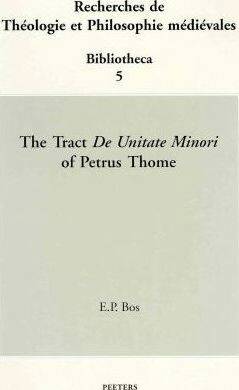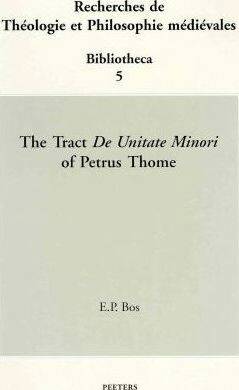
- Retrait gratuit dans votre magasin Club
- 7.000.000 titres dans notre catalogue
- Payer en toute sécurité
- Toujours un magasin près de chez vous
- Retrait gratuit dans votre magasin Club
- 7.000.000 titres dans notre catalogue
- Payer en toute sécurité
- Toujours un magasin près de chez vous
Description
The notion of unity, or of being one, has a long tradition in the history of philosophy. It is perhaps the notion to which most discussion has been devoted after that of being. It has a wide impact, and presents itself under various and different titles: truth, mind, god/God, goodness, the distinction between general and particular and so on. This holds especially for medieval philosophy. What does unity mean, and to what does it apply? What is its relation to knowledge and naming? And to being? To what extent can being be said to be one? Medieval philosophers were realists in ontology, some to a lesser, some to a greater degree. They all accepted the reality of concrete individual substances, whether existent or not. These entities are singular, and numerically one. However, the views of the medievals differed on the question whether there was another reality, i.e. one beyond the physical reality, on a metaphysical level. If so, what kind of unity is it? To define the nature of it is not easy. John Duns Scot and his pupils, among whom was Petrus Thomae (a Spaniard, born in Catalonia, ca. 1280), accepted such a unity. They accept, of course, the reality of singular concrete things, which numerically are one. However, they posit another reality, which is less than numerical, as they labelled it. This unity is neither general, because generality is a product of the mind, nor is it singular. Pupils and followers of Duns Scotus felt the need to systematise some of their masters' principal ideas. An example of this is Peter Thomae. With the intention to clarify and systematise, Peter wrote a short tract titled De unitate minori ('On unity that is less than numerical'), which is edited here. This volume of the Bibliotheca is a first critical edition of the tract.
Spécifications
Parties prenantes
- Auteur(s) :
- Editeur:
Contenu
- Nombre de pages :
- 126
- Langue:
- Néerlandais
- Collection :
Caractéristiques
- EAN:
- 9789042912410
- Date de parution :
- 30-12-02
- Format:
- Livre relié
- Format numérique:
- Trade paperback (VS)
- Poids :
- 866 g







